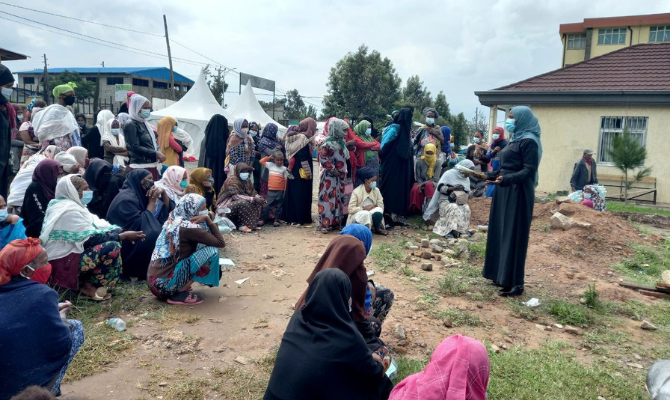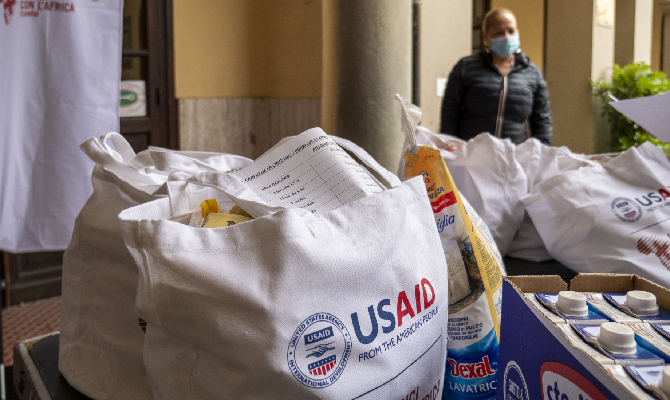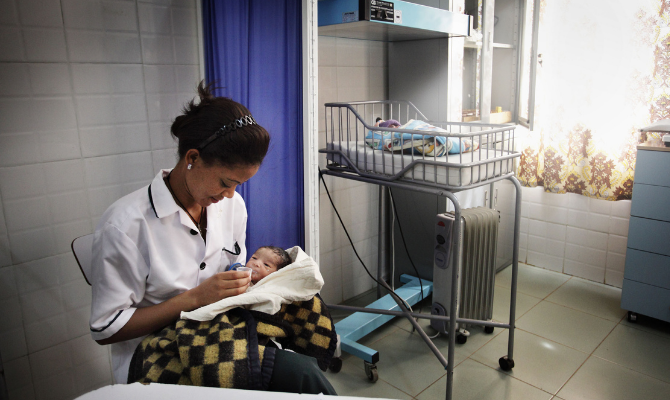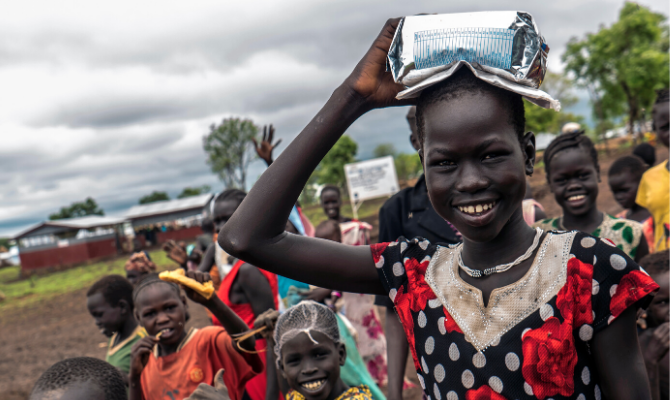The outbreak and the impact of Covid-19 pandemic has led Doctors with Africa CUAMM to put in place a set of actions to guarantee the continuity of basic healthcare services on the one hand, and to ensure and improve access to health care and protection services to the vulnerable segment of the population on the other hand, capacitating them to mitigate the effects of COVID-19.
Therefore, CUAMM has been implementing a 4-month project in Ethiopia: “Promotion of the health and protection of vulnerable segment of the population in Woreda 1, 3, and 8 of Kolfe Keranyo Sub city in response to the COVID-19 emergency” which is financed by the Italian Agency for Development Cooperation. To achieve these objectives, the project has conducted trainings and awareness raising activities, provided assistance and support to the most vulnerable, supplied medical equipment and consumables to the health centers in the three districts involved. Moreover, 14 health workers have been trained on the provision of mental and psychosocial health care services particularly related to gender-based violence (GBV). The project has allowed the procurement of dignity kit, and the training of 50 health extension workers (HEWs) on provision of referral and awareness raising on GBV. 120 poor women family heads and returnee migrants were benefited from psychosocial support and accompaniment activities and 60 single mothers were benefited from Income Generation Activities (IGA) in the immediate emergency. The project, through the collaboration of CISP, has been also working closely with school clubs to disseminate messages related to prevention of GBV through school mini medias.
Among the many significant achievements:
- 20 Family Health Team staff trained on home based isolation care and support (HBIC). They have provided with medical equipment like statoscope, pulse oximetry and other medical supplies. In the past 4 months, more than 700 COVID-19 patients received HBIC by these trained health care workers;
- Patients’ satisfaction survey conducted in 11 health centers to get users (patients) feedback. The result was disseminated for key actors of the sub-city, woreda and health centers;
- To strengthen the referral system, the 3 woreda ambulances were equipped with medical appliances to safely transport critically ill patients.
- 50 health extension workers and 28 health staff were trained and sensitized on the identification and referral of the most vulnerable cases, including mental health and psychosocial health aspect. An average 65 cases per month are referred, ncluding suspected cases of covid-19 in each woreda.
- 2695 people, returnees and migrants in the 3 target woredas benefited from the distribution of protection materials like face mask, hand sanitizer and soap. These group of people are most exposed to the risk of Covid-19 among these 71% (1903) were female, and 40% (1078) were disabled and chronically immunocompromised patients.
- More than 70,000 people reached with awareness raising and community engagement activities on Covid-19 prevention. In addition, more than 3,000 people were sensitized on the prevention of gender-based violence and social protection.
- Hygiene and sanitary kits provided for one school.
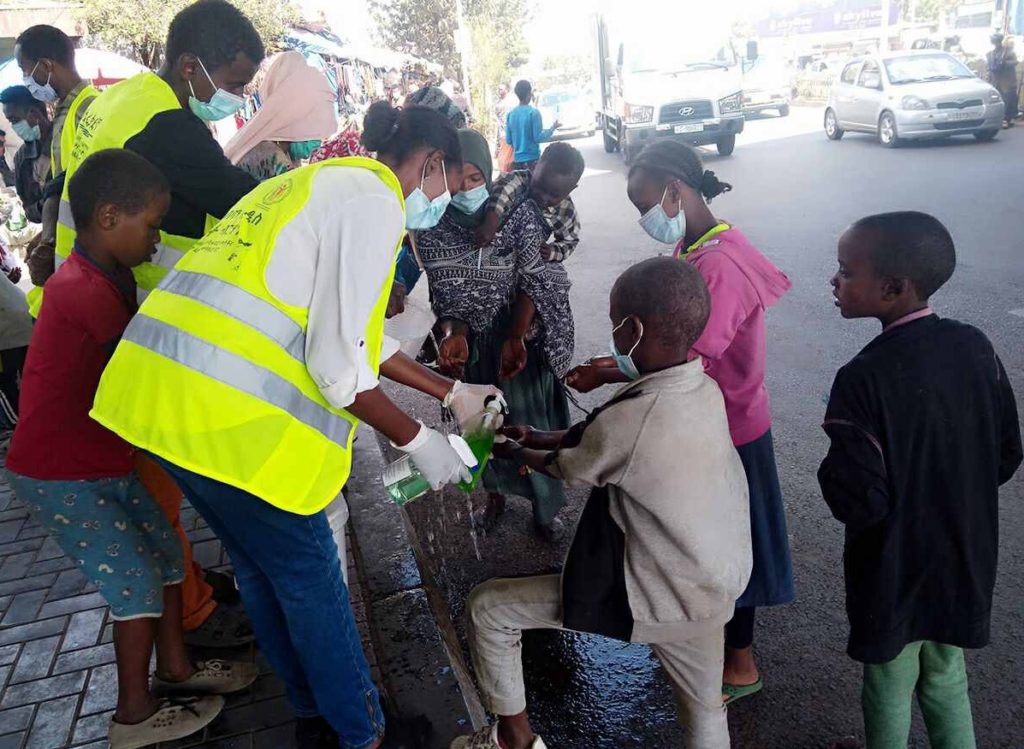
The large share of urban poor and particular segment of the population vested in Kolfe Karaniyo sub city are vulnerable to counteract Covid-19 due to lack of finances and means of preventing it. The health facilities also face shortage of basic and essential equipment and consumables. The project has achieved good results in improving the capacity of the health facilities to guarantee basic health services for the vulnerable categories. The feedback from the authorities and beneficiaries was very appealing.
There is still a urgent need of assistance to improve the quality of health services, along with providing essential medical equipment, training to health care works on various health topics, and also the urban health extension workers need logistics and follow up supports. This intervention in Addis Ababa urban context has been a good lesson and it would be important therefore to continue or even to expand the project on MNCH in the three health centers.

